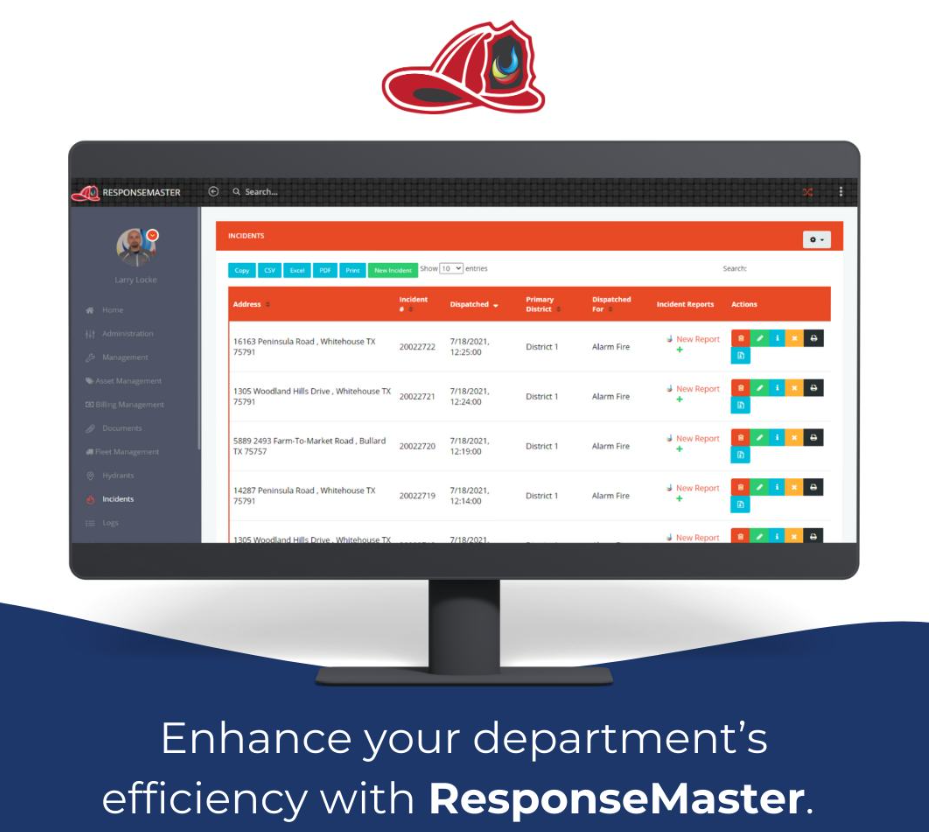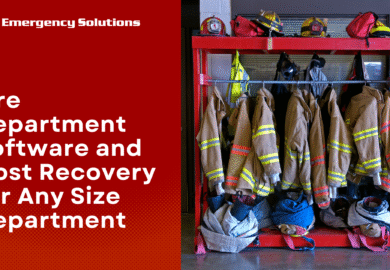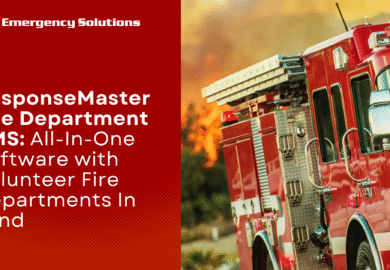
Fire Department Records Management System: Enhancing Efficiency and Accountability
Fire Department Records Management System: Enhancing Efficiency and Accountability
A Fire Department Records Management System (RMS) is a vital tool for modern fire departments, helping them organize, store, and retrieve essential data. An effective RMS optimizes operations, supports regulatory compliance, and strengthens emergency response capabilities. This article explores the benefits of a fire department RMS, key features to look for, and best practices for successful implementation.
Why Fire Department Records Management Systems Are Essential
Fire departments deal with complex, sensitive information daily—from incident reports and personnel records to training logs and equipment maintenance. A well-designed RMS enhances operational efficiency and improves accountability by allowing departments to centralize their data.
Some core benefits include:
1. Improved Data Accessibility: With a centralized database, fire departments can access records quickly and securely. Incident data, personnel files, and other critical information are readily available, enabling rapid decision-making in emergencies.
2. Enhanced Compliance: Compliance with local, state, and federal regulations is mandatory for fire departments. An RMS facilitates compliance by ensuring that records are kept accurately and are easily retrievable for audits or inspections.
3. Streamlined Reporting: Many RMS platforms automate report generation, saving time and reducing the risk of errors. Fire departments can generate detailed reports on response times, resource usage, and incident trends to inform strategic planning.
4. Increased Accountability: A robust RMS allows departments to monitor performance metrics, track resource allocation, and verify personnel qualifications. This increases transparency and ensures each team member meets training and performance standards.
Key Features of an Effective Fire Department Records Management System
When selecting a fire department RMS, it’s essential to consider specific features that meet the unique needs of emergency services.
Key features include:
1. Incident Reporting Module: The core of an RMS is its ability to document incidents accurately. This module should allow the recording of incident details, location, time, response duration, and resources deployed, ideally integrating with CAD (Computer-Aided Dispatch) systems.
2. Personnel and Training Records: An RMS should track firefighters’ certifications, training history, and continuing education to ensure compliance with training standards. Automated reminders for recertification can prevent lapses and support career development.
3. Inventory and Asset Management: Fire departments rely on equipment that must be regularly inspected, maintained, and replaced. An RMS should include an asset management module to track equipment status, location, and maintenance schedules, helping extend equipment lifespan and enhance safety.
4. Scheduling and Roster Management: Proper personnel scheduling is crucial in emergency services. An RMS can manage shift rotations, monitor overtime, and ensure adequate staffing, all while complying with labor regulations.
5. Real-Time Data Analytics and Reporting: Analytics features provide insights into trends such as incident frequency, response times, and equipment usage. Customizable dashboards and automated reporting enhance data-driven decision-making and operational efficiency.
6. Mobile Access: First responders need real-time access to data. A mobile-compatible RMS allows firefighters to log incident details, update status, and review procedures directly from the field.
7. Data Security and Compliance: Fire department data is sensitive, so a secure RMS with data encryption, user authentication, and permission-based access is crucial to protect against breaches.
Best Practices for Implementing a Fire Department Records Management System
1. Assess Department Needs: Determine which RMS features align with your department’s needs. For instance, a large urban fire department may need sophisticated data analytics, while smaller departments may focus on core incident reporting features.
2. Plan for Training: Introduce RMS training to ensure staff are comfortable using the system and to avoid disruptions. Effective training minimizes errors and maximizes system adoption.
3. Data Migration and Integration: A successful RMS implementation involves migrating existing records accurately and securely. Ensure your RMS can integrate with other systems, like CAD and EMS, to avoid data silos.
4. Establish Data Entry Standards: Consistent data entry improves reporting accuracy. Set guidelines on how data should be entered to maintain uniformity across records.
5. Monitor System Performance and User Feedback: Gather feedback from users to improve system functionality over time. Regularly review system performance, address issues, and adapt to changing department needs.
Choosing the Right Fire Department RMS Provider
Selecting a reliable RMS provider is essential to ensure long-term satisfaction and support. Look for providers with experience in public safety, positive client testimonials, and excellent customer support. Check for flexible subscription models that match your budget and allow scalability as your department grows.
A Fire Department Records Management System is more than just a database; it’s a transformative tool that enhances operational efficiency, supports compliance, and ensures accountability. By centralizing data and streamlining reporting, an RMS empowers fire departments to focus on what matters most: saving lives and protecting communities. As the demands on fire services evolve, so does the importance of an effective RMS to support rapid, informed, and data-driven emergency response.
Look no further, ResponseMaster by Emergency Solutions, Inc. has everything you need in one cloud-based fire department records management system that is designed by firefighters, is affordable, and easy to use. Watch this short fire department records management overview video to learn more and then schedule a free consulation and demo.
Recent Posts
Fire Department Software and Cost Recovery for Any Size Department
Recent Posts
- Fire Department Software and Cost Recovery for Any Size Department
- ResponseMaster Fire Department RMS: All-In-One Software with Volunteer Fire Departments In Mind
- Emergency Solutions, Inc. Launches New Referral Program
- Emergency Solutions, Inc. Launches Comprehensive Fire Department Cost Recovery System
- Fire Chief Fire Department Software Complaints


Recent Comments